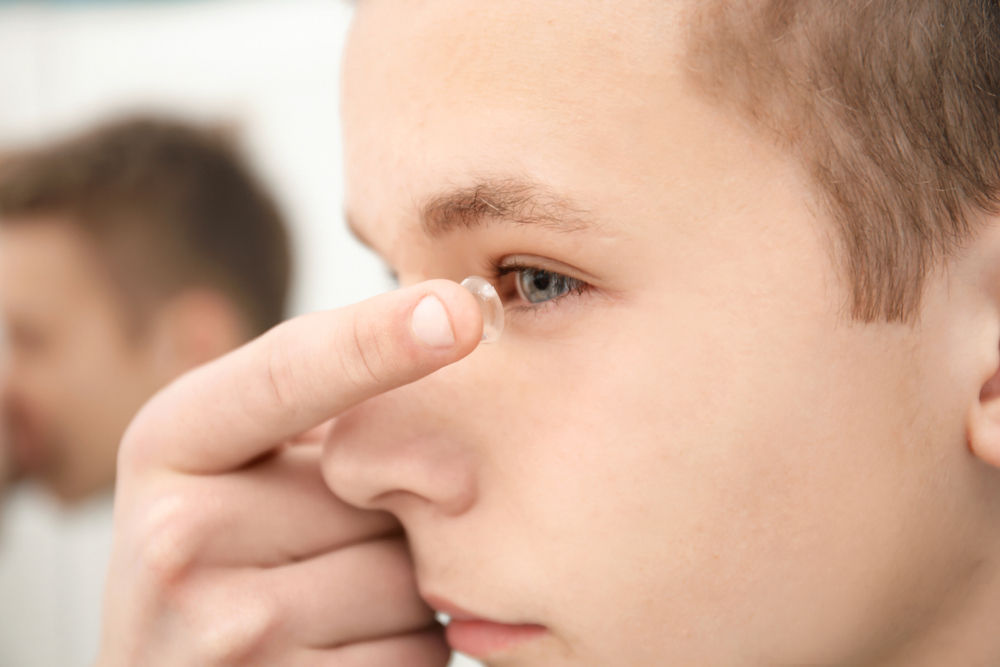
Myopia is a common refractive error that affects a significant portion of the population. It is a condition where individuals experience difficulty in seeing distant objects clearly but have no trouble focusing on objects up close. Myopia occurs when the eyeball is slightly longer than normal or the cornea is too curved, causing light to focus in front of the retina instead of directly on it.
Symptoms of Myopia
The most common symptom of myopia is blurred vision when looking at distant objects. People with myopia may also experience eyestrain, headaches, squinting, and the need to sit closer to the television or whiteboard in order to see clearly.
Regular eye examinations are crucial to diagnose and monitor myopia. During an eye exam, an optometrist will measure your visual acuity and determine the degree of myopia you have. This information is essential for understanding the progression of the condition and implementing appropriate management strategies.
Can Myopia Worsen Over Time?
Myopia can worsen over time. Many individuals experience a progressive increase in their nearsightedness throughout childhood and adolescence. This progression tends to stabilize in early adulthood but can continue to worsen at a slower rate throughout life. The rate of myopia progression varies from person to person and can be influenced by various factors.
Several factors contribute to the worsening of myopia over time. Genetics play a significant role, as individuals with a family history of myopia are more likely to experience progressive nearsightedness. Additionally, environmental factors such as excessive near work, lack of outdoor activities, and prolonged screen time can contribute to the progression of myopia.
The Importance of Myopia Management
Managing myopia is crucial to prevent further worsening of the condition and reduce the risk of associated eye complications. High levels of myopia are associated with an increased risk of developing conditions such as cataracts, glaucoma, and retinal detachment, which can lead to permanent vision loss.
Early intervention and proper management techniques can help slow down the progression of myopia and reduce the risk of these sight-threatening complications. It is essential to address myopia management as soon as the condition is diagnosed to ensure the best long-term visual outcomes.
Myopia Management Techniques and Treatments
Several approaches can be used to manage myopia and slow down its progression. These include:
- Orthokeratology: This technique involves wearing specially designed gas-permeable contact lenses overnight to gently reshape the cornea. The lenses are then removed in the morning, providing temporary clear vision throughout the day without the need for glasses or contact lenses. Orthokeratology has been shown to effectively slow down myopia progression in children and teenagers.
- Atropine eye drops: Low-dose atropine eye drops have been found to be effective in slowing down myopia progression. These drops are typically used at bedtime and work by temporarily relaxing the focusing mechanism of the eyes. Regular use of atropine eye drops under the supervision of an eye care professional can help control myopia progression.
- Multifocal contact lenses: Multifocal contact lenses, which have different power zones for near and distance vision, have also been shown to be effective in managing myopia progression. These lenses help to reduce the focusing demands on the eyes and slow down the elongation of the eyeball.
- Behavioral modifications: Encouraging outdoor activities and reducing near work activities, especially screen time, can also play a role in managing myopia progression. Spending time outdoors has been associated with a lower risk of developing myopia and slower progression in children.
It is important to consult with an optometrist to determine the most appropriate myopia management strategy based on individual needs and circumstances.
Managing Myopia with the Help of Cobb Corner Eye Care
Myopia is a common condition that can worsen over time if left unmanaged. Understanding the causes, symptoms, and factors contributing to progressive nearsightedness is essential for implementing effective myopia management strategies. With early intervention and proper techniques, the progression of myopia can be slowed down, reducing the risk of associated complications, and ensuring better long-term visual outcomes.
If you or your child have been diagnosed with myopia, schedule an appointment with optometrist to discuss myopia management options and ensure the best long-term visual outcomes. Visit Cobb Corner Eye Care at our office in Stoughton, Massachusetts, or call (781) 344-3335 to book an appointment today.








